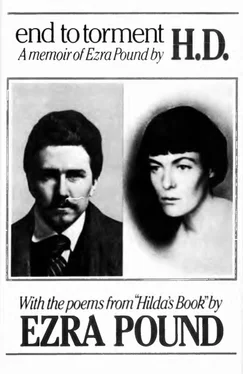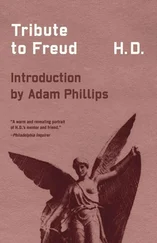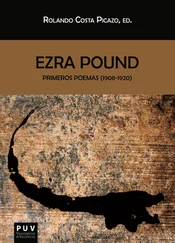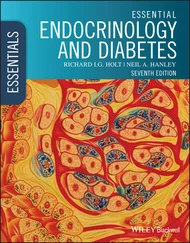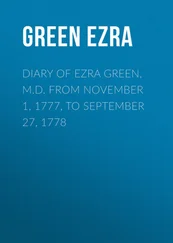Norman wrote me, asking my advice about some of the pictures. I feel that we have inherited Undine.
June 5
“Pound threw his arms around her, hugged her, and kissed her goodbye.” The second “Weekend” day, “Pound embraced her and ran his hands through her hair,” and on leaving, “Pound embraced Undine as on the day before.”
David Rattray writes, “She had huge eyes like a cat.” He speaks of her enormous forehead, tiny chin and tinier double-chin. There is no suggestion of this chin discrepancy in the mirror. The face seems peaked, triangular, the soft hair pushed off and back from the high forehead. Both Erich and Joan were enchanted with the photograph and said that the impression of Undine conveyed by the “Weekend” seemed strangely distorted.
I see this Undine. Somewhere in Rock-Drill , Ezra writes of dry rocks, desolation, no water, no place for his Undine. When Ezra left finally for Europe, Frances came into my life. She completed or “complemented” the Dryad or Druid that Ezra had evoked so poignantly. Now, it almost seems that we have a super-imposition, as Ezra leaves or will leave or has left this Undine, again so poignantly evoked — but in what desolate surroundings.
June 6, Friday
Undine. “O swallow — my sister … the world’s division divideth us …” off to strange adventure, looking for a Temple, an answer. I tremble at the words, Aztec, Aztlan, which Norman quotes from one of the letters … and a Tomb, a Venus, her own creation, to go with her — where? Frances Josepha completed me after her “father,” as Undine calls Ezra, left America for Europe, in 1908. This is 1958. The year’s division divideth us? No.
June 7, Saturday
Erich Heydt has filled in the “years’ division.” My own “weekend” is empty without him. He comes to see me at tea time (coffee time), as a rule, the first days of the week. Bryher comes on Tuesday and acquaintances from Zürich are due on Wednesday and Saturday. They want to spring-clean me out of my surroundings, one day next week. This is worse than a trip to Mexico. I can not “take” Aztec and Aztlan, though I wait feverishly for news from Norman.
June 8, Sunday
Feverishly? Is that the word?
Dorothy, the pillar of strength, the ivory tower, hides or tries to hide in her corner, “behind a ramshackle old upright piano.” He and his Undine won’t meet again. What did he say? It was a public occasion. They were all public occasions. The dim hall is always filled with the patients, the other patients, but they have their small, pathetic privacy, a semi-enclosed “alcove.” There is a group of Negroes at a table, near by, and others lying on benches along the wall. Did he tell her, then and there, it was the last time, or did he leave it at that, and write one of his all but indecipherable letters, to be understood at least in that connection, “We won’t meet again.” They won’t meet “outside.” She has friends, work, she is not alone.
Why did she write Norman of herself, Undine, “He killed her”?
Yes, it was a public occasion. It must have been the last time I saw him, before he left for Europe. It was at the Burd School where we had had the dances and the coasting parties. “Father won’t be back,” Margaret [Snively] 44said, “you and Ezra can stay in his study.” There was a couch. There were fiery kisses. There is a tentative knock. Ezra answers the door and turns to the heavy long velvet curtains. “What is the matter?” It was another shock, again “caught in the very act,” such as it was. It was enough to draw an audience. The school girls, it was discovered, had assembled on the balcony above — one of them loyally had come across to their private apartment and told Margaret. There must have been a gap in the folds of heavy velvet; anyhow, the girls had had their peep-show. I was frozen, then. Now, I think of Undine, the last time at St. Elizabeth’s, and the background of dark faces, a jungle.
June 11, Wednesday
Erich spoke of past, present and future, [Heidegger’s] die drei Ekstasen der Zeitlichkeit when I read these last entries to him, yesterday. “Did you only just remember this last — peep-show?” “I couldn’t really have forgotten it, but it only became real when I wrote of it; past, present and future, as you say, came together, die drei Ekstasen . This is the sort of remembering that is reality, ecstasy . The act of this remembering is an ecstasy , even if the thing remembered is as—“some dull opiate to the brain, and Lethe-wards had sunk.” 45But I couldn’t sink to Lethe — the humiliation dragged me back.” “That happened first with your father?” “Yes — yes — but somehow this second episode only comes true in relation to another (‘he kissed her goodbye’), perhaps that is the future, this sort of remembering, ecstasy .”
He said, “I am sad that you say your “weekend” is empty. I could always come on Saturday.” I try to explain that the emptiness is part of it — part of last summer when he was gone for three months — part (only lately realized) of the emptiness when Ezra left America — and that realization came true, became real , only when I heard on April 18th, of Ezra’s release and plans to return to Europe, and my ecstasy was tempered by my sympathy, identification almost, with Undine. I did not know then that they had already parted.
I show Erich a Time notice (June 9) that speaks of Ezra’s formal application for passport which was granted him. It speaks of “mad old poet Ezra Pound.” Erich says, “But really, how wonderful— mad old poet —it’s out of — out of—.”
“ King Lear ,” I say.
June 14, Saturday
I read an interesting article by Edmund Wilson, on “Mr. Eliot,” in The New Yorker of May 24, 1958. Mr. Wilson writes of T. S. Eliot, “Of no other poet, perhaps, does Cocteau’s bon mot seem so true, that the artist is a kind of prison from which the works of art escape.” Mr. Wilson speaks of the compulsive drive of Eliot’s poetry, he wrote under compulsion — as we write. The prison actually of the Self was dramatized or materialized for our generation by Ezra’s incarceration.
June 19
There is an intermediate place or plane , however, that can not be ignored. It survives the memory of the first fiery Lupus and the “last attachment,” a Panther of another order, the Ulysses and Achilles of heroic stature. It is le paradis of laisser aller , of the orange groves of Capri, of arcades and arches of Padua and Verona. Let go, it says, the grandiose, let go ambition; scribble and write, that is your inheritance, no grim compulsion.
Make no mistake. Poles apart, two poles made communication possible. Establish the poles. Others may use our invention, extension, communication. We don’t care any more. Only, watching, a purely instinctive gesture impels us. We would reach out, snatch a victim from the altar. Aztec. Aztlan . What can we do about it?
June 20
As I have said, Norman sent me the photographs of her pictures. I had also Undine’s booklet that Joan found me in Zürich. I wrote Norman of my feeling for her work, he wrote her of this. He said she would appreciate recognition from “another artist.” So through Norman, I receive a letter from her and I write her direct. She writes me again. In this letter of June 9, I am all the things that I would forget, “seeress,” “most high,” “most beautiful” and all the rest.
She had a copy of Modern American Poetry , 46she said, and in the H.D. section, she had made drawings in the margin. Should she send me the book?
Читать дальше
